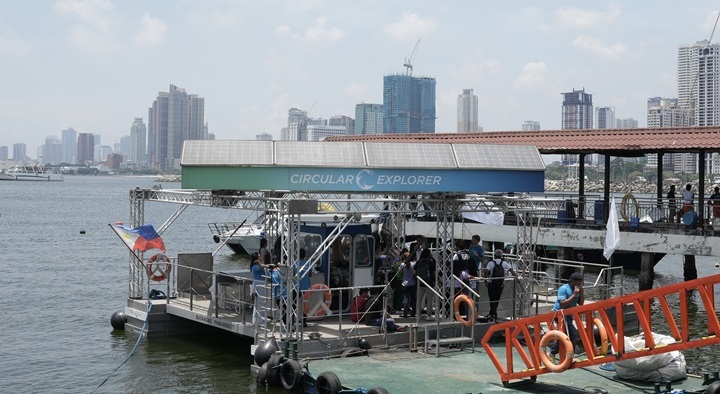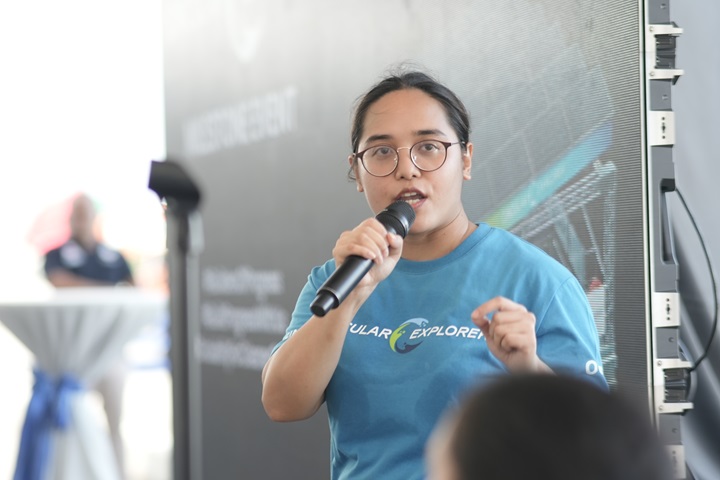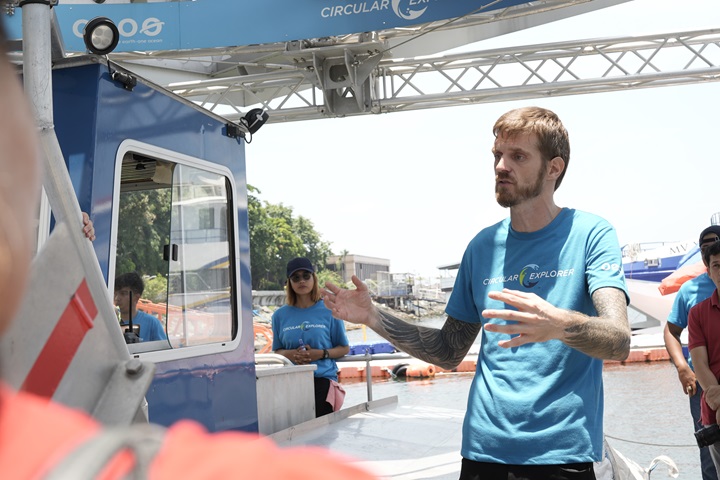
In the past two years, leading building solutions provider Holcim Philippines has established itself as a champion of the circular economy, having reused more than two million tons of waste as alternative fuels and raw materials in its operations.
The company is engaging government and private sector partners about the value of circularity in conserving resources and minimizing wastes especially as the country and population continue to grow. Holcim is also closely working with the academic community to embed the value of circularity among the youth with a grassroots campaign designed for lasting positive impact.
To support these efforts, Holcim and One Earth – One Ocean (oeoo) deployed the Circular Explorer, a solar-powered ambassador vessel to raise awareness and find solutions towards the circular economy. The Circular Explorer Team does so, by combining education and research, with networking and actual waste collection.
The Circular Explorer is supporting the cleanup of Manila Bay, where it has collected 40,000 kg of marine litter as of 31 July 2024, about 40% of which is plastic. But more than collecting waste, the Circular Explorer is also gathering data to guide researchers in developing recommendations to policy makers for possible solutions.
The University of the Philippines Marine Science uses the vessel to gather information about marine pollution using oceanographic sensors and a microplastic collector. Furthermore, the Circular Explorer shares data with the Plastics Research Intensive Methods Training Program to capacitate 80 early-career researchers and faculty members from 50 universities and government agencies across the Philippines.
The Circular Explorer project team is further expanding its youth outreach with a partnership with the Department of Education to deploy an educational toolkit on circularity to select primary and secondary schools in the National Capital Region. The goal is to eventually incorporate the modules into the educational curriculum to teach children the value of conserving resources and preventing waste through circularity.
Developed by the Asia Society for Social Improvement and Sustainable Transformation (ASSIST) and in cooperation with oeoo and Holcim, the modules are designed to simplify the concept of circularity for schoolchildren and highlight their important role in preserving the environment. The learning materials emphasize that simple acts such as properly segregating wastes and choosing environmentally friendly products go a long way toward circularity and sustainability.
Samuel Manlosa, Jr., Chief Sustainability Officer of Holcim Philippines: “This is another significant milestone for the Circular Explorer and a great way to support its mission to raise awareness about the value of circularity. By engaging Filipinos at a young age, we hope the next generation will make choices and decisions that support making circularity the norm moving forward.”

Christine Bellen, Project Manager of the Circular Explorer: “We’re excited to finally launch these learning modules to help the Filipino youth be more mindful about circularity. Through this, the Circular Explorer project becomes more impactful as it complements government efforts to mold the next generation to be more environmentally conscious. We are thankful to all our partners who made this happen and hopeful that this can help ongoing efforts to shape more sustainably-conscious Filipinos.”

Executive Manager oeoo Manila and Circular Explorer Project Manager Daniel Scheler: “When I started visiting the first local schoolsI to introduce the Circular Explorer Project in 2021, it quickly became clear that implementing specific educational materials into the curricula would be the only way to really make an impact. I can’t wait to finally share the educational toolkit with the world. I consider the creation and launching of those education assets the biggest goal the Circular Explorer Project could have ever achieved. Not only does it give us the chance to influence the mindset of the new generations, it will teach good values to future decision makers, not only on a consumer level, but also to future lawmakers, product developers, government officials.”
ASSIST Director for Programs Francis Macatulad: “ASSIST Director for Programs Francis Macatulad: “As a capacity-building organization, it’s in the DNA of ASSIST to empower the youth on sustainable development issues. Through the development of this educational toolkit and the support from DepEd, we are not just teaching concepts but nurturing future circularity heroes who will lead the way in preserving our planet for generations to come.”

